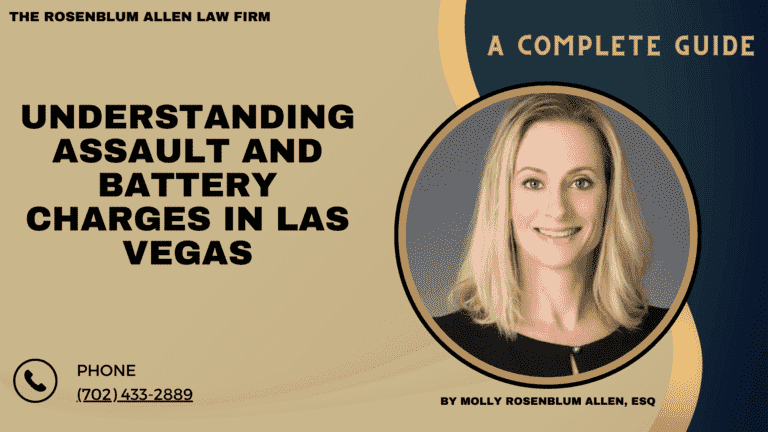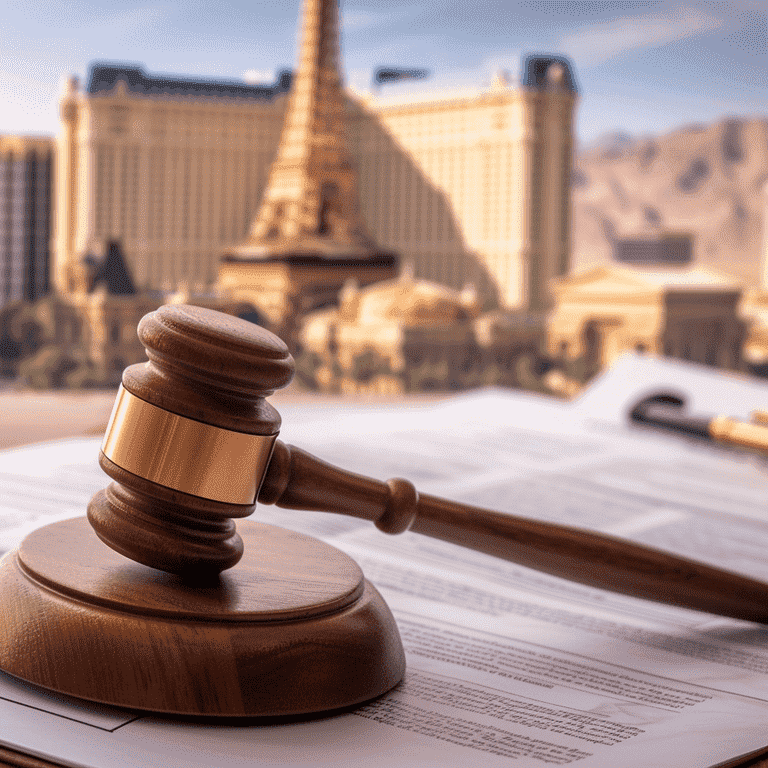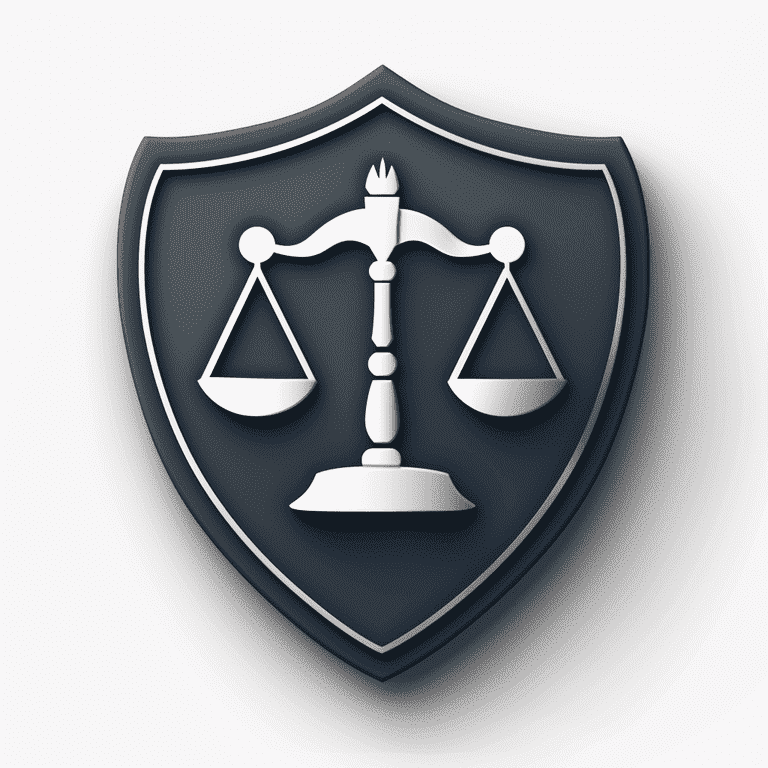Introduction to Assault and Battery Charges in Las Vegas
Las Vegas, a bustling city known for its vibrant nightlife and entertainment, is not immune to legal disputes and criminal charges that can affect its residents and visitors alike. Among these, assault and battery charges hold a significant spot due to the severe implications they carry.

Definition of Assault and Battery
The terms “assault” and “battery” often travel together, but they are separate offenses with different legal definitions.
Distinction Between Assault and Battery
- Assault: An attempt or threat to cause harm that makes a person genuinely fear an imminent battery.
- Battery: The physical act of using force against another, resulting in harmful or offensive contact.
Legal Standards for Assault and Battery in Nevada
Nevada’s legal standards for assault and battery are defined under Nevada Revised Statutes (NRS). To constitute an assault or a battery, certain elements must be met, which include intent, absence of consent, and the presence or threat of physical harm.
Relevance in Las Vegas
Understanding the nuances of assault and battery charges in Las Vegas is crucial, as these offenses carry significant legal consequences and can have far-reaching implications on one’s life and liberty.
Prevalence of Cases in the Area
Las Vegas sees a higher-than-average number of assault and battery cases due to its high tourist traffic and active nightlife, making it all the more important for residents and visitors to be aware of the legal landscape.
Importance of Knowing Your Rights
Whether you are a victim or the accused, knowing your rights is the first step in navigating the legal system effectively. Recognizing what constitutes assault and battery, understanding potential defenses, and knowing the consequences can make a substantial difference in the outcome of a case.

Types of Assault and Battery Charges in Las Vegas
Not all assault and battery charges are created equal. The severity of the charge can vary greatly depending on the circumstances of the case.
Misdemeanor Assault and Battery
These are less severe charges but still carry significant penalties.
Penalties for Misdemeanor Charges
- Jail time: Up to 6 months
- Fines: Up to $1,000
- Community service or other court-mandated programs
Examples of Misdemeanor Offenses
- A bar fight where no serious injuries occur
- A threat of violence that does not result in physical harm
Felony Assault and Battery
Felony charges apply to more serious offenses and result in stiffer penalties.
Penalties for Felony Charges
- Jail time: More than one year
- Fines: Can exceed $1,000
- Possible restitution to the victim
Examples of Felony Offenses
- Assault with a deadly weapon
- Battery resulting in substantial bodily harm
Domestic Battery
This type of offense occurs between family members or those in a domestic relationship.
Definition and Consequences
Domestic battery is treated with particular seriousness and can result in penalties, including mandatory counseling, restraining orders, and stricter sentencing.
Domestic Battery vs. Simple Battery
While simple battery involves physical contact with any person, domestic battery refers explicitly to communication within a domestic relationship and may involve additional legal considerations such as family law.
In these opening sections, we’ve set the stage for understanding assault and battery charges in Las Vegas. As you continue reading, remember that each case is unique, and the law can be as dynamic as the city itself. Whether seeking to protect your rights or to understand the potential consequences of a charge, knowledge is your first line of defense.

The Legal Process for Assault and Battery Cases in Las Vegas
When faced with the weighty terms “assault” and “battery,” it’s natural to feel a mix of confusion and concern. However, understanding the legal process can demystify these charges and provide much-needed clarity.
Reporting an Assault and Battery Incident
If you’re the victim of an assault or battery, or if you’ve witnessed one, reporting the incident is the first step in the legal journey.
How to Report
To report an assault or battery:
- Call 911 if it’s an emergency.
- Visit your local police station if the situation is not currently dangerous.
- Provide as much detail as possible, including the perpetrator’s time, location, and description.
What to Expect After Reporting
After reporting, expect the following to occur:
- Police will investigate the incident.
- They may collect evidence, interview witnesses, and file a report.
- If there’s enough evidence, the police will arrest the suspect.
Arrest and Charges
An arrest can be a startling event, whether you’re being handcuffed or watching it happen to someone else.
The Arrest Process
During an arrest:
- The police will inform the suspect of their Miranda rights.
- The suspect will be taken into custody.
- A booking process will follow, involving fingerprinting and photographing.
Initial Charges and Possible Bail
- The District Attorney’s office will review the case.
- They decide on the formal charges to be filed.
- The suspect may be released on bail, depending on the severity of the charges.
The Role of the Prosecution
The prosecution plays a pivotal role in the legal dance of assault and battery cases.
Gathering Evidence
The prosecution will:
- Collect police reports, witness statements, and any physical evidence.
- Prepare the case for trial, if necessary.
Filing Charges
- The prosecutor officially files charges in court.
- An arraignment is scheduled where the accused will hear the charges and enter a plea.
Defense Strategies
As the accused, having a solid defense can make a world of difference.
Common Defense Tactics
Defense strategies may include:
- Questioning the credibility of the prosecution’s evidence.
- Presenting alibis or witness testimony in your favor.
- Arguing for a reduction of charges based on mitigating factors.
Role of a Defense Attorney
A defense attorney will:
- Navigate the complexities of the legal system on your behalf.
- Advocate for your rights and aim for the best possible outcome.
- Craft a defense strategy based on the specifics of your case.
Navigating the legal process for assault and battery cases in Las Vegas can feel like wandering through a maze blindfolded. But with each step and turn explained, the path becomes more apparent. Remember, whether you’re dealing with the shock of an accusation or seeking justice for a wrong, you don’t have to walk this path alone. Legal professionals and support networks are available to guide you every step of the way.

Possible Defenses Against Assault and Battery Charges
Are you navigating the stormy waters of assault and battery charges? Knowing your possible defenses is like having a lifeboat. Let’s explore how you can steer clear of a conviction.
Self-Defense
Claiming self-defense is a common and often effective strategy, but it’s not as simple as declaring, “I was defending myself!”
Legal Grounds for Self-Defense Claims
For a successful self-defense claim, you must show:
- You believed you were in imminent danger of being harmed.
- Your response was reasonable and proportionate to the threat.
- You used no more force than necessary to counter the threat.
Proving Self-Defense
Gathering evidence is critical:
- Eyewitness testimonies can support your claim.
- Medical records may show the extent of any injuries you sustained.
- Surveillance footage, if available, can be pivotal.
Defense of Others
Similar to self-defense, this strategy involves protecting another person during an incident.
When Defense of Others is Applicable
You can use this defense if:
- You believed another person was in immediate danger.
- Your intervention was necessary and proportional to the threat.
Legal Justifications
The court will consider:
- The relationship to the person you defended (though not always relevant).
- The level of threat the other person faced.
Lack of Intent
Intent is a crucial element in assault and battery charges, so showing a lack of intent can be a game-changer.
Accidental Harm
If the harm caused was accidental, your defense might argue:
- There was no intention to cause harm.
- The incident was a result of misunderstanding or miscommunication.
Intent Requirement for Conviction
To convict, the prosecution must prove beyond a reasonable doubt that:
- You intended to cause harm or provoke fear in the victim.
Consent
In some situations, the alleged victim’s consent to the physical act can be a defense.
Situations Where Consent is a Defense
Consent may apply in:
- Sports activities where physical contact is a known risk.
- Medical procedures agreed upon by the patient.
Limits of Consent as a Defense
However, consent has its boundaries:
- It cannot cover acts of extreme violence or lasting injury.
- The level of harm must be within what was consented to.

Penalties and Sentencing for Assault and Battery in Las Vegas
If you’re found guilty of assault and battery, what’s next? Understanding the penalties and sentencing can help you prepare for the possibilities ahead.
Overview of Sentencing Guidelines
Sentencing for assault and battery can vary widely based on several factors.
Factors Influencing Sentencing
- The severity of the injuries inflicted.
- Whether a weapon was used.
- The defendant’s criminal history.
- Circumstances of the crime, like domestic violence.
Role of Criminal History
Repeat offenders often face harsher sentences, emphasizing the importance of a clean record.
Specific Penalties
Let’s break down what you might expect in terms of penalties.
Jail Time
- Misdemeanor charges: Up to 6 months in county jail.
- Felony charges: Years in state prison, depending on the offense.
Fines
- Misdemeanors: Up to $1,000.
- Felonies: Significantly higher, sometimes exceeding $10,000.
Community Service
- A judge may order a certain number of community service hours instead of, or in addition to, other penalties.
Rehabilitation Programs
- For substance-related offenses or domestic battery, rehabilitation or counseling may be required.
Probation and Parole
Not everyone convicted will serve time; some may be placed on probation or paroled.
Conditions of Probation
- Regular check-ins with a probation officer.
- Restrictions on alcohol or drug use.
- No-contact orders with the victim.
Parole Eligibility and Conditions
- Parole may be granted after serving part of a sentence.
- Similar conditions to probation, with the addition of a parole officer.
Understanding the possible defenses and the range of penalties associated with assault and battery charges in Las Vegas is vital. It’s like having a map in that maze we talked about earlier. Each case’s details will influence the outcome, but knowing the landscape helps you navigate confidently. And remember, a skilled defense attorney is like having a local guide; they can be invaluable in finding the best route through the legal system.
Why You Have Not Hired a Felony Defense Attorney Yet
Watch this short video to take the next big step toward defending your rights against a felony charge.

Breaking It All Down
Facing assault and battery charges in Las Vegas can feel like being dropped into a foreign land where the language and customs are unknown. But now, you’ve got a glossary, a guidebook, and a sense of the terrain.
Remember:
- Knowledge is your compass. Understanding the charges, the legal process, and potential defenses helps you find your bearings.
- Every step matters. From reporting the incident to the possible outcomes of a trial, each phase has significance and requires attention.
- Your defense is your ally. A robust defense is crucial whether arguing self-defense, lack of intent, or another applicable strategy.
- Penalties are the signposts. They indicate the seriousness of the offense and the importance of a solid defense strategy to mitigate the outcomes.
- Probation and parole are the crossroads. They offer a path that doesn’t lead directly to jail but requires strict adherence to their conditions.
As you stand at the edge of this legal journey, remember you’re not alone. Legal professionals are the guides ready to walk with you. Each case is as unique as the person at its center, and the proper support can make all the difference.
So, take a deep breath. Gather your team. Step forward with the knowledge that while the path may be complex, you’re now equipped to navigate it with your eyes open.

Frequently Asked Questions
What’s the difference between assault and battery?
Assault typically refers to the threat or attempt to harm someone, creating a reasonable fear of imminent harm. Battery, however, involves actual physical contact or harm inflicted on another person. While these terms are often associated, they can be separate charges based on the case’s circumstances in Las Vegas.
Can charges be dropped if the victim decides not to press charges?
While the victim’s wishes are considered, the prosecutor decides whether or not to pursue charges. Even if a victim chooses not to press charges, the prosecutor can proceed if there’s sufficient evidence.
Is it possible to settle an assault and battery case out of court?
Some cases may be settled out of court through plea bargaining between the defense and prosecution, but it depends on the specifics of each case and the prosecution’s stance.
Are there any long-term consequences of an assault and battery conviction beyond jail time and fines?
Yes, a conviction can lead to a criminal record, affecting future employment, professional licenses, immigration status, voting rights, and firearm ownership, among other consequences.
Can I be charged with battery if I didn’t leave any marks or cause physical injury?
Yes, battery charges can be filed even without physical marks or injuries. Offensive or harmful unwanted touching or contact is sufficient for a battery charge.
How does the presence of a weapon affect assault and battery charges?
A weapon’s presence can escalate charges, turning simple assault or battery into aggravated assault or battery, which carries more severe penalties.
Can self-defense still be claimed if I started the confrontation?
Generally, claiming self-defense requires not provoking the encounter. However, if you initiated the confrontation but clearly attempted to stop fighting and retreated before the other party continued, you may still claim self-defense.
What is a “no contact” order, and how does it work?
A “no contact” order prohibits the defendant from contacting the victim through any means. Violating this order can lead to additional charges and penalties.
Can an assault and battery charge be expunged from my record if convicted?
The possibility of expungement depends on state laws and the nature of the crime. Some convictions may be expunged under specific conditions after a certain period, but it’s not guaranteed.
Are there special considerations for assault and battery cases involving domestic violence?
Yes, domestic violence cases are treated with particular seriousness and may involve additional legal ramifications, such as mandatory arrest policies and specific treatment programs.
Can I be charged with assault if I threaten someone verbally without physical action?
Yes, verbal threats leading to reasonable fear of imminent harm can result in an assault charge. The context and nature of the threat are crucial in determining the charge’s validity.
How can I prove consent in an assault and battery case?
Proving consent typically involves showing that the other party willingly participated in the activity leading to the alleged assault or battery. Evidence like messages, witness statements, or video footage can help establish consent.

Glossary
Assault: An attempt or threat to injure another person that makes the victim fear an immediate attack. It does not require physical contact.
Battery: The actual physical act of harming someone or making unwanted physical contact with them.
Self-Defense: A legal defense claiming that actions which would otherwise be considered criminal were necessary to protect oneself from immediate harm.
Defense of Others: A legal defense that justifies using force to protect another person from harm.
Lack of Intent: A defense strategy that argues the defendant did not intend to commit a crime, particularly relevant in assault and battery cases where intent is a necessary component.
Consent: An agreement to the physical act that could otherwise be deemed as assault or battery. In legal terms, it can negate the alleged victim’s claim if it can be proven that they consented to the act.
Penalties: Legal consequences imposed on someone for committing a crime, including jail time, fines, community service, or probation.
Sentencing: The judicial determination of a punishment imposed on a person convicted.
Probation: An alternative to imprisonment, allowing a person found guilty of an offense to stay in the community, often under conditions and the supervision of a probation officer.
Parole: The conditional release of a prisoner before the completion of their sentence, under specific conditions and supervision.
Intent: A mental state in which the defendant has a purpose or plan to commit a specific act or cause a particular outcome.
Felony: A serious crime usually punishable by imprisonment for more than one year or death.
Misdemeanor: A less severe crime, typically punishable by less than a year of imprisonment or fines.
Prosecutor: A legal official who brings charges against a defendant on behalf of the government in a criminal case.
Plea Bargaining: A negotiated agreement between a defendant and a prosecutor in which the defendant agrees to plead guilty to a lesser charge in exchange for a more lenient sentence or the dismissal of more serious charges.
Aggravated Assault/Battery: An assault or battery that is made more severe by the presence of factors such as the use of a weapon, the intent to commit a serious crime, or the degree of injury caused.
Criminal Record: An official record of a person’s criminal history.
Expungement: The legal process of sealing or erasing a person’s criminal record from public view.
Domestic Violence: A pattern of abusive behavior in any relationship that one partner uses to gain or maintain control over another intimate partner.
No Contact Order: A legal order issued by the court that prevents the defendant from contacting the victim.
Understanding the terms used in legal contexts surrounding assault and battery charges can significantly aid in comprehending the process and preparing a defense.

Additional Resources for You
Coming Soon

Outside Resources for You
FindLaw: This is a comprehensive resource for legal information, including explanations of different laws, the legal process, and finding attorneys. FindLaw
Nolo: Nolo provides a wide range of free legal articles, FAQs, and resources, with specific sections on criminal law that can help those facing assault and battery charges. Nolo
American Bar Association (ABA): The ABA’s website offers resources for the public on understanding the law, as well as a lawyer referral service. American Bar Association
National Domestic Violence Hotline: For cases involving domestic violence, this resource provides support and information for victims and can offer guidance related to legal options. National Domestic Violence Hotline
National Association of Criminal Defense Lawyers (NACDL): This organization’s website provides information on criminal defense rights and has resources for finding a defense attorney. National Association of Criminal Defense Lawyers
Justia: Justia offers free case law, codes, regulations, and legal information for lawyers, business, students, and consumers. Justia
Avvo: This resource offers a directory of lawyers by practice area and location, as well as free Q&A forums where users can ask legal questions. Avvo
These resources provide a good starting point for further research, legal guidance, and support for those dealing with assault and battery charges, as well as other legal issues.

A Special Message from Our Lead Attorney, Molly Rosenblum Allen, Esq

Dear Friend,
I hope you found the resources provided informative and helpful. Understanding the intricacies of assault and battery charges can be overwhelming, but remember, you’re not alone on this journey. Knowledge is the first step towards empowerment.
If you have any questions or need personalized legal advice, I invite you to reach out for a free consultation. Call us at (702) 433-2889 to discuss the specifics of your situation and explore your options.
Thank you for taking the time to read through our resources. We are here to help guide you through this challenging time with the support and legal expertise you deserve.
Warm regards,
Molly Rosenblum Allen, Esq.




